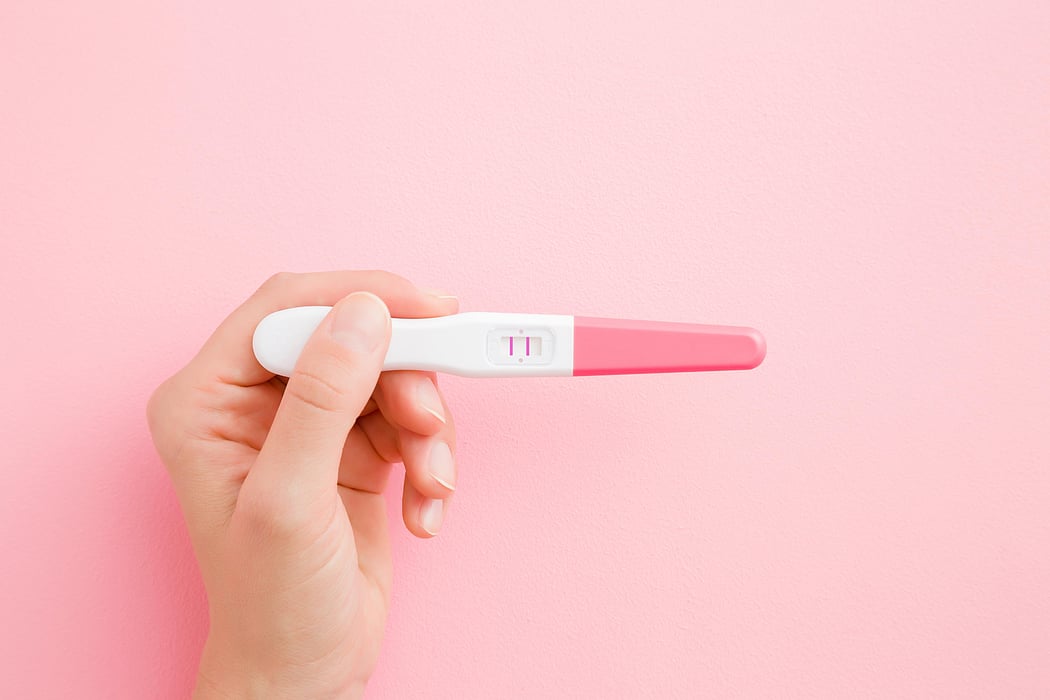Teen Pregnancy

Few teenagers have the experience or resources it takes to start a family. But that doesn't keep them from doing so. According to the National Campaign to Prevent Teen and Unplanned Pregnancy, each year more than 750,000 teenage girls become pregnant. The rate of pregnancy among American teenagers dropped steadily in recent years, but it is higher than almost all other industrialized nations.
While some teenagers make great parents, many others struggle with the staggering task of raising a child at such a young age. Trouble comes in many shapes: poverty and loneliness, health problems for the mother and baby, missed opportunities for a good education, and sadness and resentment at missing out on proms and other exciting teen activities, just to name a few.
What are the health problems associated with teen pregnancy?
According to the March of Dimes, pregnant teenagers are especially vulnerable to complications, such as high blood pressure, anemia, and, most troubling, premature delivery. Their babies are more likely to be too small at birth and often have underdeveloped lungs, vision problems, or a host of other ailments.
Most of these problems could be prevented. As reported by the March of Dimes, teenage girls are usually biologically ready to have healthy babies. If they receive proper prenatal care, have a healthy diet, and stay away from cigarettes and alcohol, they have an excellent chance for a healthy pregnancy. Unfortunately, many girls fail to take these basic steps.
What are the lasting consequences of teenage pregnancy?
In many cases, teenage pregnancy isn't just a temporary inconvenience. It's a setback that can affect the lives of the parents and the child for many years to come. For one thing, an early pregnancy can keep a woman -- and sometimes the father -- from getting a good education. As reported by the National Campaign to Prevent Teen and Unplanned Pregnancy, only 40 percent of mothers who have children before the age of 18 ever complete high school. Unqualified for a good-paying job, the mothers have a very hard time making ends meet. Almost half of all teenage mothers go on welfare within five years.
The children of teenage mothers are also at a distinct disadvantage. According to the National Campaign to Prevent Teen and Unplanned Pregnancy, they are 50 percent more likely to repeat a grade and are also less likely to finish high school. The sons of teenage mothers are more likely than sons of older moms to do a stint in prison, and daughters are more likely to become teenage mothers themselves.
Why do so many teenagers become pregnant?
According to the National Campaign to Prevent Teen and Unplanned Pregnancy, about 80 percent of teen pregnancies are unplanned. That still leaves 150,000 young girls who get pregnant on purpose. As stated by human sexuality expert Andrea Parrot in a Cornell University press release, "Many teenage pregnancies aren't accidental but intentional -- because of girls who see no life goals other than being a mother as realistically within their reach." For these girls, a simple sex education class or abstinence lecture probably won't be enough to keep them from becoming pregnant before they are truly ready.
What can be done to lower the rates of teen pregnancy?
Sex education classes, easy access to contraceptives, and personal choices to remain abstinent all play a role in preventing teenagers from becoming pregnant; providing them with opportunities that give them a sense of purpose and accomplishment is equally important. But according to the National Campaign to Prevent Teen and Unplanned Pregnancy, parents of teenagers may be the most valuable resource of all. When parents talk openly with their children about sexuality and responsibility starting at a young age, the children are less likely to rush ahead into parenthood.
What about the fathers?
For many years, reproductive policy in the United States focused only on females, something that almost everyone now acknowledges was a mistake.
"Why males were ever excluded from the way we think about pregnancy prevention is puzzling," write the authors of a report Involving males in preventing teen pregnancy. "Sexual behavior involves two partners." Relegating fertility and family to the world of women, the authors write, "has kept us from acknowledging what should have been obvious -- that males must be involved in any policy solution to unintended pregnancies among teenagers."
The report continues that it is well known that adolescent boys initiate sex earlier than girls. But "contrary to stereotypes about males' disregard for contraception," the authors say, overwhelming evidence shows that for many years teenage boys have played a key role in providing contraception. In addition, this pattern has improved steadily over the last few decades. These shifts in behavior, the researchers conclude, suggests that pregnancy prevention efforts that include young men are crucial and "will not necessarily fall on deaf ears."
Finally, when parents explain the risks of early sex and the realities of raising children, their kids are likely to listen. In the end, the facts are clear: A family is worth the wait.
References
National Campaign to Prevent Teen Pregnancy. Not just another single issue: Teen pregnancy prevention's link to other critical social issues.
March of Dimes. Facts you should know about teenage pregnancy.
National Campaign to Prevent Teen Pregnancy. Ten tips for parents to help their children avoid teen pregnancy.
March of Dimes. Teenage Pregnancy.
Related Posts
Moderate-to-Heavy Drinking Linked to Stroke Risk in Young Adults
WEDNESDAY, Nov. 2, 2022 (HealthDay News) -- For young adults, moderate-to-heavy...
Trends in Pediatric ED Visits for Mental Health Conditions Explored
WEDNESDAY, Feb. 23, 2022 (HealthDay News) -- Compared with 2019, there were...
U.S. Effort to Fight HIV Worldwide Has Brought Lifesaving Treatment to Millions
TUESDAY, March 14, 2023 (HealthDay News) -- Since it began in 2004, a global...
Las sobredosis de metadona no aumentaron en la pandemia, lo que respalda el tratamiento a domicilio
JUEVES, 14 de julio de 2022 (HealthDay News) -- Dar a los pacientes acceso a...
